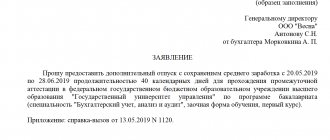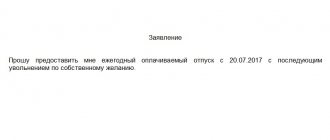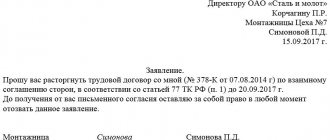Rules for registering foreign citizens for work
In order to legally attract a foreigner to work, the company is required to obtain a permit of the established form. The issuance of such a document is carried out by the FMS. With the help of permits, quotas for specific professions that foreign specialists can occupy are regulated.
Permits can be issued:
- Russian legal companies;
- companies invested from abroad;
- individual entrepreneurs hiring workers to develop their business.
The deadline for completing the work in this case cannot be longer than the validity period of the permits issued by the FMS. To obtain such permission, you must perform the following steps:
- submit an application of the established form with a package of necessary documents;
- present the conclusion of local authorities on the lack of local professionals and the advisability of attracting such foreign specialists;
- prepare a draft employment contract or other similar document defining the duties of a foreign worker and obtain his prior consent to perform such functions.
The application to the FMS is considered within 30 days. If it is necessary to perform additional examinations or obtain expert opinions, the review period increases, but not more than 45 days from the date of submission of documents. If a decision is made to refuse permission, the applicant must be sent a written reasoned response no later than 5 working days from the date of such decision.
The permit is valid for no more than a year. In the future it can be extended for another year.
Remember, the permitting process is not complicated. But here we must take into account that priority for employment will always be given to Russian citizens. Therefore, if there are similar specialists in the region looking for similar work, the likelihood of obtaining such a permit is sharply reduced.
What should an employer do to ensure that a foreign specialist is allowed to enter Russia?
At the first stage, the employer draws up a letter to the relevant ministry related to the activities of the organization. For example, if it is a construction company, then the letter will be addressed to the Ministry of Construction. The employer also sends the relevant list of documents electronically to this department.
“Documents are reviewed at different times - it depends on the ministry. Sometimes you have to wait up to 30 days for a response,”
- noted the expert.
The response received from the ministry is duplicated by the FSB, the Ministry of Internal Affairs and border control. After this, a foreign specialist can enter Russia.
“If this is a highly qualified specialist who already has a work permit and a visa, then he can easily enter the territory of the Russian Federation. If a company is just going to register an employee, then the foreigner will first need to contact the Ministry of Internal Affairs to obtain a work permit and invitation,”
- said Alexander Ivanovich.
Law on attracting foreign labor
The issue of employment of foreigners is regulated at the state level. However, there is no separate legislative act summarizing all these issues yet. At the same time, the necessary norms can be found in the laws of Federal Law 109, Federal Law 115, Chapter 50.1 of the Labor Code of the Russian Federation, as well as international treaties. These documents regulate:
- basic powers and obligations for employed foreigners;
- periods of time when such citizens must register for temporary or permanent migration registration;
- location for the period of performance of labor functions on Russian territory;
- what regulates migration law regarding foreign specialists performing labor functions in Russia;
- how such persons should interact with government authorities;
- the procedure for extending Russian labor legislation regarding foreigners for the entire period of their performance of work functions;
- features of documenting labor agreements;
- how labor relations with foreign citizens are terminated;
- a list of countries whose citizens have the right to perform work functions on Russian territory without any additional permits.
Remember, the absence of a unified law does not mean that the employment of foreigners is not clearly regulated. It is simply necessary to use several legislative documents at the same time, which clearly indicate the main points of such interaction.
Migration registration
When entering across the border, a foreign citizen is required to obtain and fill out a migration card.
Foreigners who are highly qualified specialists may not need to register for migration if they stay in Russia for no more than 90 days from the date of entry. If, after this period, a foreign citizen - a highly qualified specialist has not left Russia, then within seven working days he must register with the migration authorities. In case of moving to another region (if the place of stay has changed), such citizens have the right not to register within 30 days after arrival in the new area.
The organization, no later than seven working days from the date of arrival of the foreign employee at the place of stay, is obliged to send a notification about this to the migration service. To the notification of arrival, the organization attaches a copy of the foreign citizen’s identity document, and in the case of a foreigner temporarily staying in Russia, a copy of his migration card.
Such rules are established by Article 25.9 of the Law of August 15, 1996 No. 114-FZ, paragraphs 1, 3 and 4.1 of Article 20 of the Law of July 18, 2006 No. 109-FZ, paragraph 31 of the Administrative Regulations approved by order of the Federal Migration Service of Russia dated August 29, 2013 city No. 364.
An organization can send a notification in three ways:
- directly through a representative of the organization;
- through a multifunctional center;
- by post.
This procedure is provided for in paragraph 22 of the Rules, approved by Decree of the Government of the Russian Federation of January 15, 2007 No. 9.
The procedure for the provision of public services for migration registration by the migration service is prescribed in the Administrative Regulations, approved by Order of the Federal Migration Service of Russia dated August 29, 2013 No. 364.
How to get permission
To obtain permission from the Federal Migration Service to hire a specialist from abroad, an organization needs to collect the following documents:
- tax certificate;
- a document confirming the registration of a legal entity;
- certificate of the presence of branches, as well as their registration in accordance with the established procedure (where present);
- permission confirming the right to open representative offices (if present);
- statutory documents of the company defining the scope of its activities;
- a copy of the order (decision) on the appointment of a director (manager);
- informational justification for the need to attract such an employee from abroad;
- a receipt confirming the transfer of state duty (paid for each employee separately);
- power of attorney for the head of a department (branch) if he is entrusted with employment issues.
You will need to have the documents not only in the original, but also in duly certified copies, which are sent for further verification to the FMS division at the place of registration of the legal entity src=»https://naimtruda.com/wp-content/uploads/2018/12/S3670001_1- 1100×619.jpg" class="aligncenter" width="1100″ height="619″[/img]
All FMS
Memo for an employer or customer of work (services) hiring a highly qualified foreign specialist
Attention!
In 2015, a number of federal laws concerning the performance of labor activities by foreign citizens, including highly qualified specialists, came into force:— representative offices of foreign legal entities will be able to attract highly qualified specialists under the terms of Article 132 of the Federal Law; — the amount of the state fee for issuing a work permit to a foreign citizen or stateless person is increasing and amounted to 3,500 rubles; — the minimum wage (remuneration) for highly qualified foreign specialists employed by legal entities operating in the territories of the Republic of Crimea and the federal city of Sevastopol is reduced to one million rubles per year (365 calendar days).
From March 1, 2015, an employer or customer of work (services) has no right to attract foreign citizens to work in the Russian Federation as highly qualified specialists for two years if this employer or customer of work (services):
- did not fulfill the obligations assumed to a highly qualified specialist established in accordance with Federal Law No. 115-FZ, or obligations arising from the terms of an employment contract concluded with a highly qualified specialist, or he did not comply with the essential conditions of a civil contract for the performance of work (provision of services) concluded with a highly qualified specialist;
— submitted forged or forged documents to the federal executive body in the field of migration or its authorized territorial body.
If one of these circumstances is identified, the Federal Migration Service of Russia or its territorial body makes a decision to prohibit the relevant employer or customer of work (services) from engaging foreign citizens in labor activities in the Russian Federation as highly qualified specialists for two years.
A foreign citizen who has work experience, skills or achievements in a specific field of activity is recognized as a highly qualified specialist if the conditions for attracting him to work in the Russian Federation require him to receive wages (remuneration):
- at least one million rubles per year (365 calendar days) - for highly qualified specialists who are researchers or teachers, if they are invited to engage in research or teaching activities in educational programs with state accreditation by educational organizations of higher education, state academies of sciences or their regional branches, national research centers or state scientific centers, as well as for highly qualified specialists involved in labor activities by residents of industrial-production, tourist-recreational, port special economic zones (with the exception of individual entrepreneurs) operating in the field of information technologies and have received, in the manner established by the Government of the Russian Federation, a document on state accreditation of an organization operating in the field of information technology (with the exception of organizations that have the status of resident of a technology-innovative special economic zone;
- in the amount of no less than seven hundred thousand rubles per year (365 calendar days) - for foreign citizens involved in labor activities by residents of the technology-innovation special economic zone (with the exception of individual entrepreneurs);
- at least one million rubles per year (365 calendar days) - for foreign citizens involved in labor activities by legal entities operating in the territories of the Republic of Crimea and the federal city of Sevastopol;
- excluding salary requirements - for foreign citizens participating in the implementation of the Skolkovo project in accordance with Federal Law of September 28, 2010 No. 244-FZ “On Innovation;
- in the amount of at least two million rubles per year (365 calendar days) - for other foreign citizens.
The employer or customer of work (services) independently assesses the competence and level of qualifications of foreign citizens whom they wish to attract as highly qualified specialists, and bear the corresponding risks.
To assess the competence and level of qualification of an invited highly qualified specialist, the employer or customer of work (services) uses documents and information confirming that the specialist has professional knowledge and skills , information about the results of the foreign citizen’s work activity, including reviews of other employers and customers of work (services), including foreign ones, information provided by organizations professionally involved in personnel assessment and selection, information about the results of intellectual activity, the author or co-author of which is a foreign citizen, information about professional awards and other forms of recognition of professional achievements, information about the results of work carried out by the employer or customer (services) competitions, as well as other objective, reliable and verifiable documents and information.
Employers or customers of work (services) who are:
1) Russian commercial organizations;
- Russian scientific organizations, professional educational organizations and educational organizations of higher education (with the exception of religious educational organizations), healthcare institutions, as well as other organizations carrying out scientific, scientific, technical and innovative activities, experimental developments, tests, training in accordance with state priority areas for the development of science, technology and engineering of the Russian Federation, if they have state accreditation in cases provided for by the legislation of the Russian Federation;
— branches and representative offices of foreign legal entities accredited in the prescribed manner on the territory of the Russian Federation;
2) within two years before the date of submission of the application to attract highly qualified specialists, who have not been subject to administrative punishment for illegally recruiting foreign citizens or stateless persons to work in the Russian Federation, and also who do not have, at the time of filing such an application, unfulfilled decisions imposing administrative punishment for commission of the specified administrative offenses
Attention!
An employer or customer of work (services) involving a highly qualified foreign specialist does not need to obtain a permit to attract and use foreign workers. Quota for issuing invitations to foreign citizens to enter the Russian Federation for the purpose of carrying out work activities, quota for issuing work permits to foreign citizens, permissible share of foreign workers employed in various sectors of the economy by business entities operating on the territory of one or more constituent entities of the Russian Federation , and throughout the Russian Federation, established by the Government of the Russian Federation, do not apply to highly qualified specialists and members of their families.
The employer or customer of work (services) in order to obtain a work permit and extend the period of his temporary stay in the Russian Federation for these purposes, as well as to issue an invitation to enter the Russian Federation (if necessary) for a highly qualified specialist must submit to the federal executive body in the field migration or its authorized territorial body:
- application for the involvement of a highly qualified specialist;
- an employment contract or a civil contract for the performance of work (provision of services) with a hired highly qualified specialist, the entry into force of which is conditional on the receipt of a work permit by this highly qualified specialist;
- a written obligation to pay (reimburse) the expenses of the Russian Federation associated with the possible administrative expulsion from the Russian Federation or deportation of a highly qualified specialist attracted by him.
The employment contract or civil law contract for the performance of work (provision of services) submitted when an employer or customer of services (work) applies to hire a highly qualified specialist must have the following data:
- date of the concluded employment (civil) contract;
- position of hired highly qualified foreign specialist;
- wages in Russian currency (rubles);
- The date of entry into force of the mentioned agreements is determined by the receipt of a work permit by a highly qualified specialist.
In order for an employer or customer of work (services) to obtain a work permit, a highly qualified specialist must pay a state fee in the amount of 3,500 rubles for each foreign citizen.
Attention!
The employer or customer of work (services) has the right not to present a receipt for payment of the state duty for issuing a work permit.
The period for consideration of the application of the employer or customer of work (services) to attract a highly qualified foreign specialist is no more than fourteen working days from the date of receipt of the application by the federal executive body in the field of migration or its authorized territorial body.
To extend the validity of a work permit for a highly qualified foreign specialist, the employer or customer of work (services) no later than thirty days before the expiration of the previous work permit submits to the federal executive body in the field of migration:
- application from the employer or customer of work (services) to extend the validity period of a work permit for a highly qualified specialist;
- an employment contract or a civil contract for the performance of work (provision of services) with a highly qualified specialist, the entry into force of which is conditional on the receipt of a work permit by this highly qualified specialist;
- a copy of a medical insurance agreement (policy) or an agreement concluded by an employer or customer of work (services) with a medical organization for the receipt of primary health care and specialized medical care by a highly qualified specialist and his family members who are permanently residing in the Russian Federation together with him, who are foreign citizens;
- information on the amount of wages (remuneration) paid to a highly qualified specialist by the employer or customer of the work (services);
- documents confirming the registration of a highly qualified specialist at the place of residence.
Attention!
The employer or customer of work (services) has the right not to present documents confirming the registration of a highly qualified specialist at the place of residence.
The period for consideration of an application to extend the validity of a work permit for a highly qualified specialist is no more than fourteen working days from the date of receipt of the said application by the federal executive body in the field of migration.
The validity period of a work permit issued to a highly qualified specialist, as well as the validity of a visa and residence permit issued to such a highly qualified specialist and his family members, is extended for the period of consideration of the application submitted by the employer or customer of work (services), with which the highly qualified specialist entered into a new an employment contract or a civil contract for the performance of work (provision of services).
Employers or customers of work (services) that engage highly qualified specialists are obliged to:
— quarterly, no later than the last working day of the month following the reporting quarter, notify the federal executive body in the field of migration or its authorized territorial body about the fulfillment of obligations to pay wages (remuneration) to highly qualified specialists;
— notify the territorial body of the federal executive body in the field of migration in the subject of the Russian Federation in the territory of which this foreign citizen carries out labor activities about the conclusion and termination (termination) of an employment contract or a civil contract with this foreign citizen for the performance of work (rendering services) within a period not exceeding three working days from the date of conclusion or termination (termination) of the relevant agreement.
IMPORTANT! New forms of notification of the conclusion and termination of an employment contract or a civil contract for the performance of work (provision of services) with a foreign citizen or stateless person, as well as the procedure for their submission, were approved by Order of the Federal Migration Service of Russia dated December 1, 2014 No. 640 “On Amendments” to the order of the Federal Migration Service of Russia dated June 28, 2010 No. 147 “On the forms and procedure for notifying the Federal Migration Service about foreign citizens carrying out labor activities on the territory of the Russian Federation.”
Attention!
According to Order of the Federal Migration Service of Russia dated January 15, 2013 No. 4 “On approval of the List of authorized territorial bodies of the Federal Migration Service of Russia” (as amended by Order of the Federal Migration Service of Russia dated October 21, 2013 No. 415), acceptance and consideration of applications for the involvement of highly qualified specialists and documents attached to them, registration and issuance of work permits, as well as invitations to highly qualified specialists and members of their families, is carried out in the territorial departments for migration issues.
Details for paying the state fee, addresses and reception hours when receiving public services in territorial departments for migration issues
.
Application for a permit to attract foreign workers
In order to unify the procedure for considering and issuing permits for the employment of foreigners, standard application forms were developed and approved at the federal level, providing for all possible options. Typical application forms include the following:
- a standard form for issuing a company permission to hire foreigners to the organization's staff for temporary work;
- a standard application for extending the period of validity of a work permit for a foreigner;
- a standard application for granting a foreign student permission to study in state-accredited educational institutions;
- the company’s request for the need to attract a highly qualified foreign specialist to perform the work;
- an application on the basis of which a foreigner (stateless person) arriving on a visa will be issued a work permit.
All fields of the listed documents must be filled out. Samples and the procedure for filling them out can be obtained directly from the FMS offices.
Remember, filing an application not in the prescribed form is a formal reason for refusing to consider it, even if all other documents are properly completed.
Does VI OU G PRACTIC help to issue entry invitations for foreign specialists to Russia?
The company helps employers who are planning to attract foreign employees. In particular, employees of VI OU GI PRACTIC are ready to write a letter to the ministry to invite a specialist to Russia during a pandemic.
“Unfortunately, we cannot help private individuals, since according to Russian laws they must be invited by their employer. Therefore, we can only assist legal entities in preparing this letter, issuing a work permit and invitation,”
- noted the head of the company.
The head of VI OU GY PRACTIC LLC on entry into Russia for foreign specialists
Information:
The VI OU G PRACTIC company helps employers obtain all the necessary documents for the legal employment of foreigners in the Russian Federation. The organization is engaged in registration in Moscow:
- work permits for specialists;
- permits to attract foreign employees;
- inclusion in the list for entry into the Russian Federation;
- workers, business visas.
The company accompanies its clients at all stages right up to obtaining permits for foreign employees, as well as client organizations and other legal entities.
Address: 127106, Moscow, st. Gostinichnaya, 5
Telephone:
E-mail:
Website: vog-practice.ru
Subscribe to Migranta Rus: Yandex News.
The procedure for obtaining quotas for attracting foreign workers
Applications for the need to attract foreign citizens as labor must be submitted within the established time frame through specialized institutions identified in a particular region. To obtain the desired quotas, you will need to provide the following documents:
- Two copies of applications in the prescribed form (can be taken from the Migration Quotas AIC). The system is located on the Employment Center website. There you can read the rules for registering and filling out this type of document.
- A copy of the power of attorney, if the documents are not signed by the first head of the legal entity.
- Stamped and signed extracts from state registers (legal entities or entrepreneurs, depending on who submits the application).
- A letter of guarantee from the customer's company, which specifies confirmation of the provision of a place of residence to the involved specialists, a minimum package of health insurance services with supporting documents.
- A detailed letter justifying the need to hire foreigners, steps taken to find similar workers among compatriots, what specific tasks the foreigner will have to perform that domestic specialists cannot perform. The information should be supported by documents (responses from the employment center, educational institutions, refusals of potential Russian applicants to perform such activities).
Who is a highly qualified foreign specialist?
By virtue of paragraph 1 of Art. 13.2 of Law No. 115-FZ, a highly qualified foreign specialist is recognized as a person who has citizenship of another state, work experience, skills or special knowledge in a certain field of activity. However, the qualifications of the future employee, in accordance with paragraph 3 of Art. 13.2 of the same legal act is determined by the employer at his own discretion and at his own risk, since a foreign specialist is not always required to have an education document. Only if he is applying for a position with special knowledge, confirmation of their diploma is mandatory.
An analysis of these standards leads to the conclusion that the primary criterion for determining an employee as highly qualified is the size of his monthly salary. We will talk about this indicator in detail in the next section of the article.
It is prohibited to assign VIS status to:
- citizens engaged in preaching and other religious activities, including teaching religion and rituals;
- foreigners working in retail trade, with the exception of employees at management or organizational levels (directors, managers, heads of departments, managers).
Citizens who have received VIS status have a number of advantages over others:
- They and their family members are not subject to quotas on invitations, issuance of work permits, or the share of foreigners in the company (Clause 2, Article 13.2 of Law No. 115-FZ).
- The employer is not required to have permission to hire VIS.
- The personal income tax rate for them is 13%.
- They do not need to undergo a medical examination or take an exam in the Russian language.
- A work permit is issued for a maximum of 3 years, and can be valid in several regions of the Russian Federation (persons working on the basis of a temporary residence permit do not have the right to leave the region in which they received it).
Interaction between the FMS and the employer
After receiving a permit quota and completing the procedure for employing a foreigner, the company is obliged to maintain information exchange with the FMS office. To do this, no later than three days after drawing up an employment agreement with a foreigner, the employer is obliged to notify the territorial branch of the FMS about this fact in the prescribed form. The document can be sent by mail or delivered in person (through the office).
It is important to note that this is an informal interaction procedure. This order is defined at the legislative level and its violation has very real consequences. An employer who violates the procedure for informing about cooperation with a foreigner may be subject to an administrative fine of up to one million rubles.
Remember, it does not matter here whether a foreigner lives on Russian territory temporarily or permanently. The very fact of concealing the beginning of an employment relationship is considered a violation.
Salary of a highly qualified specialist in 2018
As mentioned above, a person can receive the status of a highly qualified foreign specialist only if his income meets the requirements of paragraph 1 of Art. 13.2 of Law No. 115-FZ.
So, according to this criterion in 2021, a VIS will be considered an employee:
- Receiving at least 83,500 rubles monthly. and invitee:
- educational and research institutions as a teacher or researcher;
- a resident (legal entity) of special economic zones (port, tourism, industrial and production);
- commercial organizations or educational or scientific institutions in the field of high technologies (development, implementation and maintenance of computer programs and databases);
- commercial companies in the Crimea and Sevastopol;
- to the territory of the international medical cluster as a pedagogical, scientific or medical worker.
- Receiving at least 58,500 rubles monthly. and invited by a resident (legal entity) of a special economic zone with a technology-innovation focus.
- Invited to the Skolkovo project (salary amount is not taken into account).
- Whose earnings are at least 167,000 rubles. per month (for citizens who do not comply with paragraphs 1–3).
Attracting highly qualified foreign specialists
In 2010, migration legislation underwent some changes, according to which the attraction of highly qualified foreign specialists to work in Russian companies no longer required such professionals to obtain permits. Such specialists are identified according to the following criteria:
- They have special skills, achievements and experience in a certain field of activity (high-precision industries, scientific activities, government projects).
- Employers are ready to pay remuneration for their work at the rate of more than 2 million rubles per year.
- The maximum duration of work for such professionals is three years, with the possibility of re-registration of this period.
Remember, a highly qualified specialist is considered to be one whose activities bring significant economic benefits to the state. And for this they are ready to generously compensate for a person’s intellectual expenses.
Which foreign specialists are currently allowed to enter Russia to work?
According to Russian Government Order 635-r, today Russia is ready to admit highly qualified specialists and maintenance specialists, that is, those involved in the installation and supervision of equipment.
“The borders are also open to family members of highly qualified specialists. That is, if an employee is on the territory of the Russian Federation, then an accompanying relative who has a work visa can also enter the country,”
— Vladimir Alexandrovich noted.
Let us remind you that there are already air connections between Russia and some foreign countries. These are Kazakhstan, Belarus, Kyrgyzstan, Serbia, Japan, Great Britain, Turkey, Tanzania, Cuba, Switzerland, Egypt, Maldives, UAE, Ethiopia, Seychelles, Republic of Korea. Foreign citizens who arrive in the Russian Federation by plane do not need to have a reason for entry.
Features of the registration procedure
The process of hiring a new employee with HQS status has its own peculiarities. To avoid mistakes and fines, strictly follow the step-by-step registration of a highly qualified foreign specialist; the employer’s algorithm of actions is as follows.
1 step. Employment contract or civil contract (CLA)
The execution of an employment contract (or GPA) is carried out taking into account the requirements of No. 115-FZ and Articles 327.2 and 327.3 of the Labor Code of the Russian Federation:
- The delayed entry into force of the contract is indicated - after receiving a work permit. The conclusion period is determined by the date of execution of the agreement and its signature by the parties (indicated in the header).
- The salary amount is fixed - not lower than the minimum established by law for the corresponding category of workers (see table above). If there is an annex to the contract containing the terms of remuneration, a reference must be made in the text that the application is an integral part of it. The Ministry of Internal Affairs does not accept a letter of guarantee in the form of a separate document confirming the amount of remuneration of the HQS as a document on remuneration.
- It is allowed to conclude an employment contract for a highly qualified foreign specialist for a period of more than 3 years or indefinitely. Extended by agreement of the parties.
- The text of the employment contract specifies a condition on providing the HQS (and members of his family) with medical care in the Russian Federation (details of the VHI policy or the employer’s agreement on the provision of paid medical services to the employee).
- When concluding the GPA, it is necessary to identify the equivalent of the position for the work performed (provision of services), describe in detail the type of services provided by the specialist under the contract, and the place where the work (services) is performed. The conditions and contents, although similar to the employment contract, have differences. HQS are not subject to social guarantees provided for by the legislation of the Russian Federation, the contractor under the GPA is not sent on a business trip, the parties in the text of the contract stipulate the procedure and timing of the work (services) and the procedure for their payment (the condition for payment in the amount of at least 167,000 rubles monthly - Necessarily).
Notification of the conclusion of the contract must be submitted to the migration authority no later than 3 working days from the date of conclusion. In fact, it is submitted even before receiving a work permit, since the employment contract with the HQS is concluded before submitting documents for a work permit; such a notification does not indicate information about the work permit, migration card and notification of arrival.
Step 2. Work visa, invitation
Foreign citizens of states with a visa regime located outside the Russian Federation must obtain a Russian work visa. It is issued on the basis of an invitation from the employer at the Russian consulate in your country.
By the time you receive a completed work permit in the Russian Federation, a visa must be obtained and pasted into your passport.
If an employer attracts a foreign citizen for the first time, then it is first necessary to register the legal entity with the Federal Migration Service as a receiving party. The set of documents for registration includes an application in the established form and the constituent documents of the employing company.
Step 3. Petition to attract HQS
The main stage on the path to employment is the employer’s application to the Main Directorate for Migration Affairs of the Ministry of Internal Affairs of the Russian Federation. To obtain a work permit for highly qualified foreign specialists, they submit an application in the prescribed form. Apply to it:
- a copy of the foreign citizen’s passport with a notarized translation;
- employment contract (or GPA);
- letter of guarantee (written obligation) to pay the expenses of the Russian Federation associated with possible administrative expulsion from the Russian Federation or deportation of this specialist (clause 6 of Article 13.2 of Law No. 115-FZ);
- payment order for payment of state duty for issuing a work permit;
- a copy of the TIN assignment certificate;
- copy of OGRN.
Provided that all documents are correctly filled out and a complete set is provided, the period for consideration of an application to engage a highly qualified specialist is no more than 14 working days. The duration of the work permit strictly follows the validity period of the concluded employment contract (or GPA), but not more than 3 (three) years. The foreign citizen receives the finished document in person by presenting the original passport.
In practice, simultaneously with the application, a notice of concluding an employment contract (EAP) with a foreign citizen is also submitted.
Step 4 Migration registration
Upon entry, a foreign citizen is required to obtain a migration card.
The employing company must send a notification about this to the Main Directorate for Migration Issues of the Ministry of Internal Affairs no later than 7 working days from the date of arrival of the foreign employee. The employer attaches to the notification a copy of the foreign citizen’s identity document and a copy of his migration card.
Article 20 of the Federal Law No. 109-FZ dated July 18, 2006, highly qualified specialists and family members are exempt from the obligation to register for migration at their place of stay for a period not exceeding 90 days from the date of their entry into the territory of the Russian Federation.
If they are already registered in the Russian Federation, upon arrival at a new place of stay on the territory of the Russian Federation (another region) for a period not exceeding 30 days, they are exempt from the obligation to register in the new place. After the expiration of the period, they are required to register within 7 working days. Confirmation of registration at the place of stay - a mark in the detachable part of the notification form of the arrival of a foreign citizen. It is affixed by the migration registration authority, hotel or post office. If there are documented valid reasons that prevent the employer from sending a notification of the arrival of a foreign employee to the migration registration authority, the notification is sent by the foreigner himself (Article 22 No. 109-FZ).
The same rules apply if the HQS is sent by the employer on a business trip.










